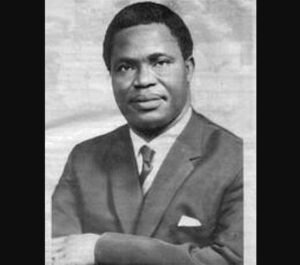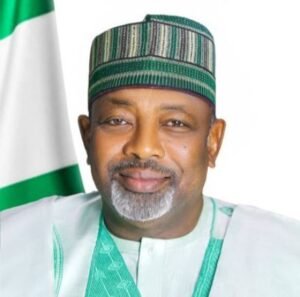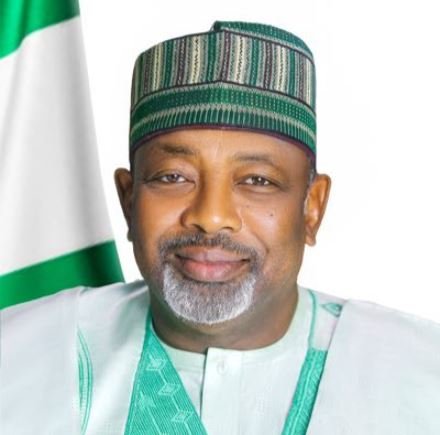The Federal Ministry of Agriculture and Food Security in Nigeria formulates and implements agricultural policies to provide food availability for the growing population.
Established in 1966 to address raw materials for industries, expand markets for agricultural products, and create jobs. The ministry also supplies resources for different agricultural projects, supported by funding from donor partners.
Its mission includes managing the agricultural sector through stakeholder engagement, promoting agro-industrial development, and improving food security to drive sustainable growth and employment across the nation.
READ ALSO: Complete List Of Delta State Governors (1991-Present)
List Of Ministers Of Agriculture And Food Security In Nigeria From 2001 Till Date
No | Name | Term In Office | Party |
|---|---|---|---|
1 | Abba Sayyadi Ruma | 2007 - 2010 | People's Democratic Party (PDP) |
2 | Sheikh Ahmed Abdullah | 2010 - 2011 | People's Democratic Party (PDP) |
3 | Akinwumi Adesina | 2011 - 2015 | People's Democratic Party (PDP) |
4 | Audu Innocent Ogbeh | 2015 - 2019 | All Progressives Congress (APC) |
5 | Sabo Nanono | 2019 - 2021 | All Progressives Congress (APC) |
6 | Mohammad Mahmood Abubakar | 2021 - 2023 | All Progressives Congress (APC) |
7 | Abubakar Kyari | 2023 - Present | All Progressives Congress (APC) |
READ ALSO: List Of Ministers Of State For Defence In Nigeria (2023-Present)
Departments Under The Federal Ministry Of Agriculture And Food Security
Here is a list of the departments under the Federal Ministry of Agriculture and Food Security in Nigeria:
- Crop Production
- Animal Production
- Fisheries
- Agricultural Extension Services
- Research and Planning
- Agro-Allied Industries
- Rural Development
- Food Security
- Veterinary Services
- Agricultural Mechanization
READ ALSO: Top 10 Richest LGAs In Nigeria
Who Was The First Minister Of Agriculture In Nigeria?

Patrick Nwokoye Okeke-Ojiudu, known as P.N. Okeke-Ojiudu, was the first Minister of Agriculture in Nigeria, serving from 1959 to 1966 during Nigeria’s First Republic.
Born in 1914 in Alor, Eastern Nigeria, Okeke-Ojiudu attended St. Charles Teachers Training College in Onitsha, Anambra State, and became a headmaster shortly after graduating.
However, before he joined politics, Okeke-Ojiudu made a name for himself in business, particularly in textiles and building materials. His political career began in 1950 and won a local government election in his hometown.
Then he served as a member of the Onitsha Northern District Council and later became a prominent member of the Eastern House of Assembly under the National Council of Nigeria and the Cameroons (NCNC) party.
In 1959, he was appointed as Nigeria’s first Minister of Agriculture. He was part of the cabinet led by Premier Michael Okpara and focused on agricultural development during his time in office.
One of his major achievements was establishing farm settlements throughout the Eastern Region, which helped to boost food production and improve the economy.
He also worked on several important projects, including the establishment of the Universal Insurance Company and the Nigerian Construction and Furniture Company.
After the military coup in January 1966, which ended the First Republic, Okeke-Ojiudu retired from politics and shifted his focus to business.
He founded Peenok Investments, a real estate and investment company, and his family later expanded into different successful ventures, including the Zodiac Hotels Group. For his contributions to Nigeria, he received honors, including a knighthood from the Pope in 1975.
Okeke-Ojiudu’s legacy lives on through his family’s ongoing business endeavors and his impact on Nigeria’s agricultural sector. Sadly, he passed away in 1995 at the age of 81 in Enugu.
READ ALSO: Complete List Of Ministers Of Education In Nigeria (1958-Present)
Who Is The New Minister Of Agriculture And Food Scarcity In Nigeria?

The new Minister of Agriculture and Food Security in Nigeria is Abubakar Kyari. He assumed office on August 21, 2023, under President Bola Tinubu’s administration.
Kyari is a notable figure in Nigerian politics and has had a diverse career in both governance and business. Abubakar Kyari was born on January 15, 1963.
He comes from a prominent family; his father, Brigadier Abba Kyari, served as a military governor in Nigeria. Kyari’s educational journey took him through several institutions in Nigeria and the United States.
He started his schooling at Kaduna Capital School and later attended Barewa College in Zaria, where he completed his West African Senior School Certificate Examination (WASSCE) in 1979.
He then pursued higher education at the University of Tennessee and earned a bachelor’s degree in 1986. His academic journey continued at Webster University in St. Louis, Missouri, where he obtained a Master’s in Business Administration (MBA) in 1989.
Kyari’s political career began in the late 1990s when he was elected to the House of Representatives. However, he did not take office due to the dissolution of his party following a military regime change.
He returned to politics in 1999 and served as a representative for Borno State. In 2015, Kyari was elected as a senator for Borno North. He was re-elected in 2019 and continued to serve until his resignation in April 2022.
Following his time in the Senate, he was appointed as the Deputy National Chairman of the All Progressives Congress (APC) and briefly served as the acting national chairman of the party in mid-2023.
Kyari faces notable challenges as the minister of agriculture and food scarcity. Nigeria has been grappling with food security issues, including the impacts of climate change, conflicts, and economic constraints.
Kyari is expected to work with stakeholders, including farmers, private sector players, and international partners, to promote sustainable agricultural practices and ensure food availability for all Nigerians.
In recognition of his contributions, Kyari was honored with the title of Commander of the Order of the Niger (CON) in October 2022.

